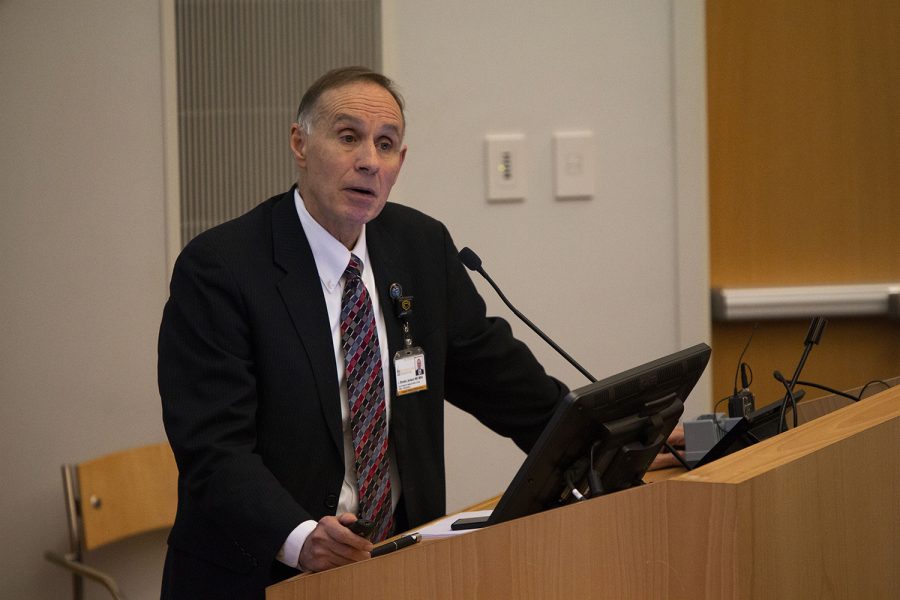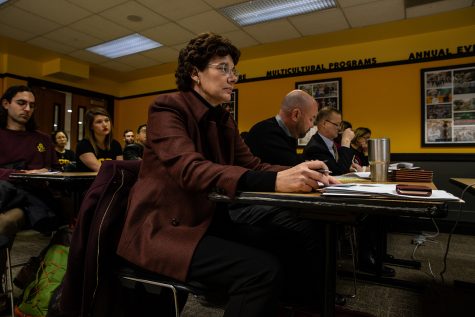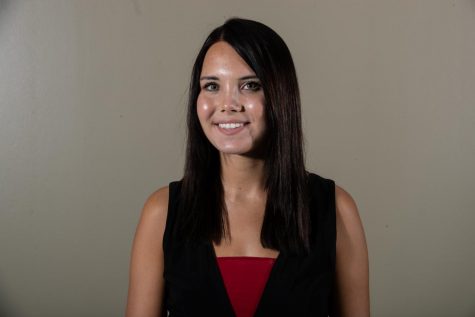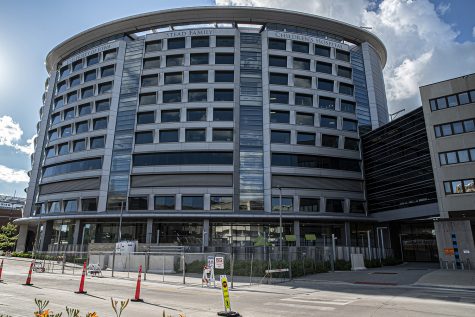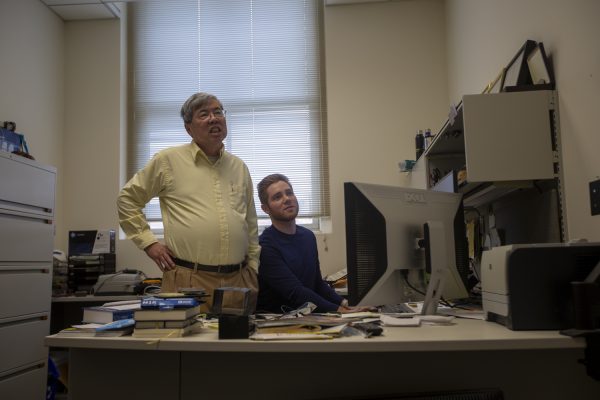Brooks Jackson addresses UI Health Care strategic plan
In a presentation on Wednesday, Brooks Jackson commented on the challenges facing UI Health Care, and potential solutions.
Brooks Jackson, MD, MBA, University of Iowa vice president for medical affairs and dean of the UI Carver College of Medicine, speaks to attendees during “State of the Enterprise: Strengths, Challenges, and the Path Forward” at the Medical Education and Research Facility on Wednesday, Nov. 28, 2018. Jackson provided an overview of UI health care research.
November 29, 2018
In a presentation to the Carver College of Medicine on Wednesday evening, UI Vice President for Medical Affairs Brooks Jackson briefed faculty and staff on the strengths and challenges facing UI Health Care, as well as the path forward.
Unlike many other institutions in the nation, the UI Hospitals & Clinics is integrated with the Carver College of Medicine, a relationship that should be taken advantage of, said Jackson, also the dean of the medical school.
“We are a very large entity,” he said. “We have a mission in that being a state institution, we really have special obligations to all the populations of Iowa.”
A focus on strong leadership in research, faculty, ranking, and outreach will bring more attention to UIHC and the medical college, leading to a bigger return on investment, Jackson said.
“Growing patient volumes and achieving a better payer mix is very important,” he said. “The reason is the academic health systems are extremely high fixed-cost enterprises.”
The biggest challenges facing UI Health Care is the lack of scholarship money to attract both resident and nonresident students, low to negative health-care reimbursement, state reductions in funding of higher education, among other items, Jackson said.
RELATED: New UIHC unit will take burden off of emergency room
“Obviously, with such a large organization, you can imagine the demands and who should be prioritized,” he said. “We have to work together.”
In an effort to look ahead strategically, Jackson introduced the state of the enterprise committee, a faculty-led unit that will make sure UIHC and the medical college have their priorities and timelines aligned.
“Ten heads are better than one,” Jackson said. “This work group is not just the leaders, the chairs, and the administrators, it’s a lot of key players in our organization.”
He concluded with an outline of opportunities to continue operating as an integrated unit, including partnering with health systems throughout Iowa, making education more affordable, and advocating for money and policy change where there is bipartisan agreement.
“We do have some great innovative scientists and providers here,” Jackson said. “Everyone pays attention to rankings. I think scholarship is extremely important.”
He emphasized the need for more recruitment in faculty and patients, both at UI facilities and in outpatient clinics across the state.
A larger population of patients means more opportunities for observation and leadership in clinical tests and trials, he said, noting that this coincides with a need for expansion in facilities.
RELATED: Rural hospital benefits from UIHC telemedicine
“We need more access to physician practices,” said Brad Haws, the UIHC associate vice president for finance. “We’ve talked about putting physicians in other communities. Some of it’s just reputation and having the right people.”
The latter is congruent with another point made by Jackson, who said the UI should aim to recruit and retain faculty members with its achievements.
In a May interview with The Daily Iowan, UI President Bruce Harreld addressed UI Health Care, which is fiscally half the UI system and dependent upon referrals for more complex medical cases, which seem to be decreasing statewide.
“We don’t do much primary and secondary care,” Harreld said. “As across the U.S., the system is consolidating, and people are starting to actually build big, huge complexes … they’re more inclined to keep their patients in their own systems, so that’s an issue for us.”



